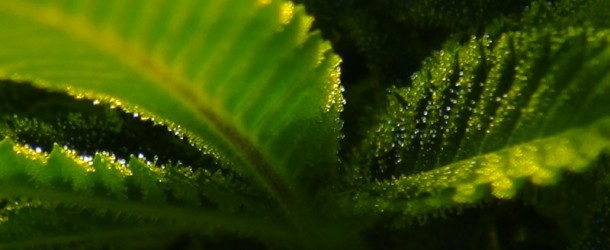RAMBO
The other day I was asked by an acquaintance why the tincture they were making had very little, if any, noticeable medicinal or psychoactive effect. They swore they followed the same process found in a book on making edibles and soaked the cannabis in high proof for weeks but the tincture just didn’t work.
The answer was simple but one that many in the cannabis industry don’t understand. One very important and necessary extra step had been overlooked. Cannabis used to make tinctures as well as other edible cannabis products requires decarboxylation. From asking around I have a feeling a lot of you just blurted out “Say What?”
So here is the deal. THCA (Tetrahydrocannabinolic Acid) is found in abundance in growing and harvested cannabis and is a biosynthetic precursor of THC (Tetrahydrocannabinol). Wow, this sounds scary like organic chemistry, doesn’t it? It is, so for both of our benefits, I’ll give you the dumbed down version.
Research suggests THCA has anti-inflammatory and neuroprotective effects but does not produce the psychoactive effect that make you feel “high”. This “high” is from the cannabinoid THC, of which little if any is found when cannabis is growing or recently harvested.
Decarboxylation is a chemical reaction that releases carbon dioxide (CO2). This means a chemical reaction takes place in which carboxylic acids loose a carbon atom from a carbon chain. This process converts THCA to THC, the much loved compound with many medicinal and psychoactive effects. When the cannabis drys, it very very slowly begins to decarboxylate and converts THCA to THC.
The good news is we don’t have to wait years for cannabis to decarboxylate. We can speed things along with a process that is a lot simpler than you might expect. Simply heating dried cannabis to the correct temperature for enough time releases that carbon dioxide and creates THC. Why have so many of you never heard of this before? Decarboxylating takes place without extra effort when cannabis is heated during the act of smoking or vaporizing. It also takes place to some degree when cannabis is cooked into butter or when hash and kief are added to a favorite recipe and then cooked in the oven.
When making tinctures, cannabis is not heated or baked, it is simply soaked in high proof alcohol. Decarboxylation never takes place and you end up with a product with a lot of THCA and very little THC. This may be a good for some symptoms but will not produce the results most expect.
Full Article:
http://www.marijuanagrowershq.com/decarboxylating-cannabis-turning-thca-into-thc/
The answer was simple but one that many in the cannabis industry don’t understand. One very important and necessary extra step had been overlooked. Cannabis used to make tinctures as well as other edible cannabis products requires decarboxylation. From asking around I have a feeling a lot of you just blurted out “Say What?”
So here is the deal. THCA (Tetrahydrocannabinolic Acid) is found in abundance in growing and harvested cannabis and is a biosynthetic precursor of THC (Tetrahydrocannabinol). Wow, this sounds scary like organic chemistry, doesn’t it? It is, so for both of our benefits, I’ll give you the dumbed down version.
Research suggests THCA has anti-inflammatory and neuroprotective effects but does not produce the psychoactive effect that make you feel “high”. This “high” is from the cannabinoid THC, of which little if any is found when cannabis is growing or recently harvested.
Decarboxylation is a chemical reaction that releases carbon dioxide (CO2). This means a chemical reaction takes place in which carboxylic acids loose a carbon atom from a carbon chain. This process converts THCA to THC, the much loved compound with many medicinal and psychoactive effects. When the cannabis drys, it very very slowly begins to decarboxylate and converts THCA to THC.
The good news is we don’t have to wait years for cannabis to decarboxylate. We can speed things along with a process that is a lot simpler than you might expect. Simply heating dried cannabis to the correct temperature for enough time releases that carbon dioxide and creates THC. Why have so many of you never heard of this before? Decarboxylating takes place without extra effort when cannabis is heated during the act of smoking or vaporizing. It also takes place to some degree when cannabis is cooked into butter or when hash and kief are added to a favorite recipe and then cooked in the oven.
When making tinctures, cannabis is not heated or baked, it is simply soaked in high proof alcohol. Decarboxylation never takes place and you end up with a product with a lot of THCA and very little THC. This may be a good for some symptoms but will not produce the results most expect.
Full Article:
http://www.marijuanagrowershq.com/decarboxylating-cannabis-turning-thca-into-thc/
